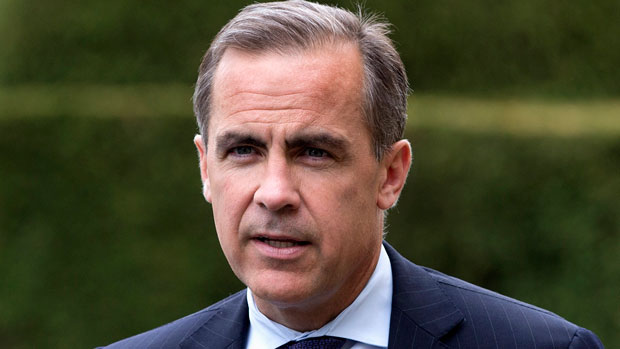Forward Guidance II: does Carney's policy hold water?
Not everyone is convinced by BoE governor's efforts to clarify his intentions on interest rates

A free daily email with the biggest news stories of the day – and the best features from TheWeek.com
You are now subscribed
Your newsletter sign-up was successful
Mark Carney's "run of luck" as Bank of England governor "shows no signs of ending", says Emily Cadman in the Financial Times. This week's drop in inflation to a four-year low of 1.9 per cent comes on the back of "buoyant" growth numbers and falling unemployment.
Add in sterling's appreciation, which has helped the inflation outlook by reducing the cost of imported goods, and the Bank's chances of keeping interest rates low for a prolonged period "look good". As economist Andrew Goodwin of the EY Item Club observes: "With inflationary pressures subdued, the Bank will be able to wait until it has seen evidence of a sustained pickup in real wages and greater balance to the recovery", before it needs to fire the starting gun.
The Bank has upgraded its growth forecast for this year to "a punchy" 3.4 per cent, a level last seen during the pre-crisis boom, says Kathryn Cooper in the Sunday Times. Carney believes the economy can grow at this level without stoking inflation because it still has some spare capacity – is still operating below its full potential. Plenty of economists fundamentally disagree "and think Carney is gambling with the Bank's credibility". It is just six months since he launched his flagship forward guidance policy, pledging to consider rate rises only when unemployment fell to seven per cent. With this threshold now in sight, he has "abandoned the jobless target" and linked future rises to the "much more nebulous" concept of spare capacity.
The Week
Escape your echo chamber. Get the facts behind the news, plus analysis from multiple perspectives.

Sign up for The Week's Free Newsletters
From our morning news briefing to a weekly Good News Newsletter, get the best of The Week delivered directly to your inbox.
From our morning news briefing to a weekly Good News Newsletter, get the best of The Week delivered directly to your inbox.
Unemployment is "merely hard" to gauge exactly; measuring "slack" is impossible because "it involves spotting how far an economy is below its potential, which is unknowable", says John Authers in the FT. As far as forward guidance goes, then, we're back to "the old game of second-guessing policy".
"I suspect the real reason that Carney wants to keep rates at 0.5 per cent into 2015 is the household debt burden – and because of one group of households in particular," says Philip Aldrick in The Times. "High-debt mortgagors" (people who have borrowed more than twice their annual earnings) are "struggling", despite rock-bottom rates.
And they comprise a sizeable percentage of British households. Given that consumers "are still doing the heavy lifting" in terms of driving growth, even a small rise "could derail the economy".
The broader point is indeed that the recovery remains "fragile", says The Economist, and Carney is right to emphasise that fact. His volte face on forward guidance has been condemned by some as "a credibility-sapping shambles", but its first iteration was actually no failure. Although the Bank's economists forecast the jobless rate poorly, "the guidance itself convinced businesses and investors that rates would not rise soon", despite the recent acceleration in growth. Forward Guidance II could well misfire too. But that central message remains the same
A free daily email with the biggest news stories of the day – and the best features from TheWeek.com
A version of this article appears in the 22 February 2014 edition of The Week